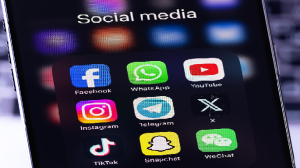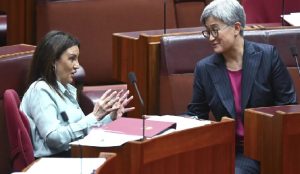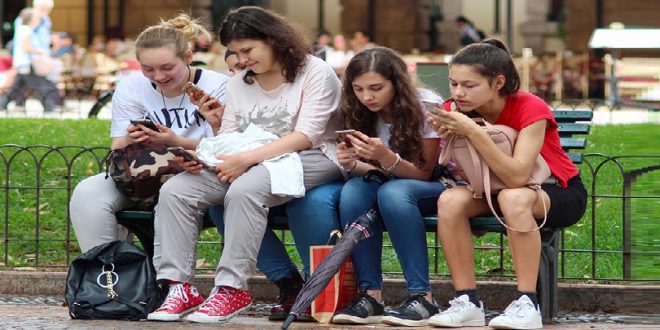30-11-2024
Bureau Report
CANBERRA: Australia will ban children under 16 from using social media, after its parliament approved the world’s strictest laws.
The ban, which will not take effect for at least 12 months, could see tech companies fined up to A$50m ($32.5m; £25.7m) if they don’t comply.
 Prime Minister Anthony Albanese says the legislation is needed to protect young people from the “harms” of social media, something many parent groups have echoed but critics say questions over how the ban will work and its impact on privacy and social connection have been left unanswered.
Prime Minister Anthony Albanese says the legislation is needed to protect young people from the “harms” of social media, something many parent groups have echoed but critics say questions over how the ban will work and its impact on privacy and social connection have been left unanswered.
This is not the first attempt globally to restrict children’s social media use, but the minimum age of 16 is the highest set by any country. Unlike other attempts, it also does not include exemptions for existing users or those with parental consent.
Having passed the Senate by 34 votes to 19 late on Thursday, the bill returned to the House of Representatives where it passed early on Friday.
“We want our kids to have a childhood and parents to know we have their backs,” Albanese told reporters afterwards.
The legislation does not specify which platforms will be banned. Those decisions will be made later by Australia’s communications minister, who will seek advice from the eSafety Commissioner an internet regulator that will enforce the rules.
However the minister, Michelle Rowland, has said the ban will include Snapchat, TikTok, Facebook, Instagram and X. Gaming and messaging platforms are exempt, as are sites that can be accessed without an account, meaning YouTube, for instance, is likely to be spared.
The government says will it rely on some form of age-verification technology to implement the restrictions, and options will be tested in the coming months. The onus will be on the social media platforms to add these processes themselves.
 However digital researchers have warned there are no guarantees the unspecified technology which could rely on biometrics or identity information will work. Critics have also sought assurances that privacy will be protected.
However digital researchers have warned there are no guarantees the unspecified technology which could rely on biometrics or identity information will work. Critics have also sought assurances that privacy will be protected.
They have also warned that restrictions could easily be circumvented through tools like a VPN which can disguise a user’s location and make them appear to be logging on from another country.
Children who find ways to flout the rules will not face penalties, however.
Polling on the reforms, though limited, suggests it is supported by a majority of Australian parents and caregivers.
“For too long parents have had this impossible choice between giving in and getting their child an addictive device or seeing their child isolated and feeling left out,” Amy Friedlander, who was among those lobbying for the ban, recently told media.
“We’ve been trapped in a norm that no one wants to be a part of” but many experts say the ban is “too blunt an instrument” to effectively address the risks associated with social media use, and have warned it could end up pushing children into less regulated corners of the internet. During a short consultation period before the bill passed, Google and Snap criticized the legislation for not providing more detail, and Meta said the bill would be “ineffective” and not meet its stated aim of making kids safer. In its submission, TikTok said the government’s definition of a social media platform was so “broad and unclear” that “almost every online service could fall within (it)”. X questioned the “lawfulness” of the bill saying it may not be compatible with international regulations and human rights treaties which Australia has signed.
Some youth advocates also accused the government of not fully understanding the role social media plays in their lives, and locking them out of the debate.
 Pressmediaofindia
Pressmediaofindia




